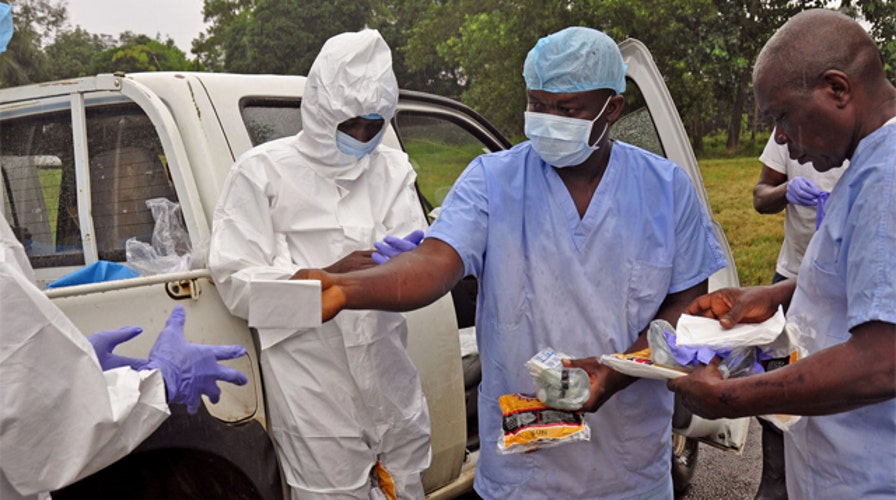Obama requesting $6.2 billion to combat Ebola in West Africa
DHS Secretary Jeh Johnson to speak to Congress
When crisis strikes, the world looks to the United States for leadership. And that holds true for public health emergencies.
As the Ebola epidemic takes its toll in West Africa, we are witnessing our exceptional national character in action.
Thousands of Americans — civilian, military and private citizens — are selflessly deploying to the front lines in Liberia, Guinea and Sierra Leone. They are working to halt the virus’ spread, save lives and keep us safe at home. Unsurprisingly, no country is doing more; this is the spirit, the can-do ethos that sets our country apart and makes us the indispensable nation.
[pullquote]
Even while the virus rages on, we are seeing glimmers of hope. In Liberia, where the U.S. response has been concentrated, some counties have experienced fewer cases, just as the transmission rate appears to be slowing. But now is not the time for complacency; we saw similarly hopeful signs earlier this year, only to realize they were illusory when the virus roared back, ultimately invading Liberia’s largest city and capital, Monrovia. All the while, Sierra Leone and Guinea today remain in the throes of the outbreak.
That is why it is critically important for the United States to remain on offense. To this end, the Obama administration last week requested $6.2 billion in emergency funding from Congress for the Ebola response.
This request supports what we know we must do to counter this disease: tackle it on the front lines, fortify our domestic health infrastructure, pursue vaccines and therapeutics and improve our capacity for rapid diagnostic testing, among other key steps.
Some of these funds would be spent at home, while part would go toward the international response. But to be clear, every single dollar would help protect the American people from this threat, which must remain the priority.
Some have urged for the imposition of a travel ban to protect against additional Ebola cases reaching our shores. As a doctor, however, I know that our strategy must be guided by science. And as a former U.S. senator, I strongly believe we must not institute policies chock full of unintended consequences. A travel ban would run afoul of both principles.
As a practical matter, there are no direct flights between the United States and West Africa. And approximately two-thirds of those traveling from the region to the United States are U.S. citizens or legal permanent residents. Impeding their access to this country — their country — would upend the Constitution in the name of fortifying against a threat that has claimed exactly, though sadly, one life on U.S. soil.
Experience also tells us that a travel ban would make us only more vulnerable. Travelers from the region, regardless of nationality, are subject to stringent screening protocols in West Africa, at many transit points in Europe and again upon landing in the United States. Any ban would incentivize would-be travelers to mask their point of origin, take irregular travel routes and evade the robust screening measures now in place.
The Obama administration has made this argument, but this is not a partisan finding. The administration of George W. Bush — during whose time in office I served as the Republican Senate majority leader — also deemed travel bans to be ineffective in the face of communicable disease. This is about sound science and smart policy, not politics.
All the while, we know the most effective way to protect the American people is to extinguish this fire at its source. The U.S. military is playing a major role in doing so, but the U.S. and international response must appropriately remain civilian-led.
Since the first Ebola cases were reported last spring, hundreds of American health care workers have heeded the call to serve in West Africa. And we will need many more to follow in their footsteps in order to control this epidemic.
I’ve spent a lot of time over the years personally delivering medical and surgical care throughout Africa. So I agree with President Obama when he commends those doing what he termed “God’s work” in West Africa. To be sure, we owe them our collective gratitude. But we also must not deny them the support and backing they need to fulfill their mission, to protect the American people and to keep themselves safe.
The axiom holds true that we must isolate Ebola, not countries. And the dedicated and brave Americans who serve on the front lines will be key to helping us do so.

